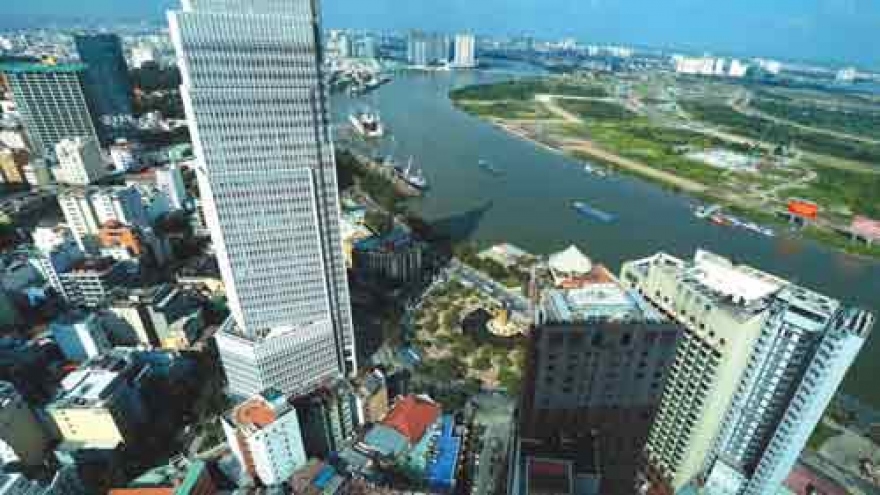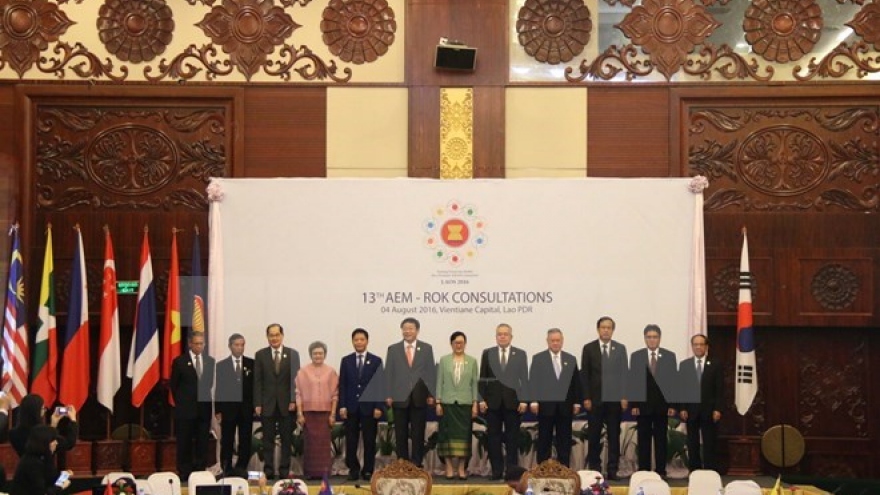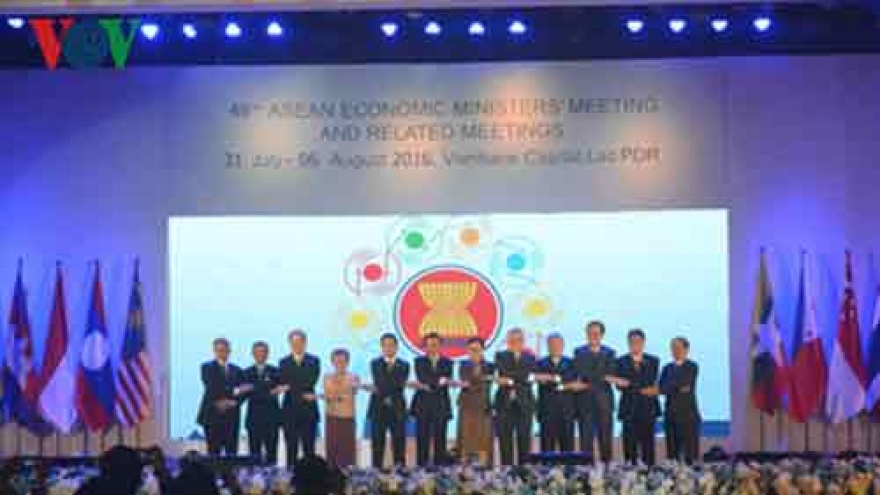Trade deficit indicates Vietnam lacks competitiveness
VOV.VN - Commercial trade with the ASEAN is a microcosm of the challenges facing the Vietnamese domestic sector globally.
 |
The trade deficit with the 10 member nations of the ASEAN trade bloc widened by US$4.5 billion during the first nine months of 2016, higher than the US$4.1 billion shortfall for last year’s same period, reports the General Department of Vietnam Customs.
“The trade deficit continues a decade-long trend and is a surrogate measure of competitiveness,” Le Dang Doanh, member of the United Nations Committee for Development Policy, explained in an interview.
Revenues from Vietnam exports to ASEAN members tallied in at US$12.2 billion while imports stood at US$16.7 billion for the nine-month period, said Mr Doanh, who is widely regarded as one of the country’s leading economists.
Out of the 10-member bloc, Vietnam imported more goods from Thailand than any other country.
Vietnam imports from Thailand for the nine months January-September consisted of computers and electronic devices valued at US$729 million, machinery at US$589.6 million, and vehicles at US$440 million.
Notably, fruit and vegetable imports from the neighboring country soared 76.4% on-year to US$289.6 million.
Agriculture in one of the largest segments of the Vietnam economy and the magnitude of these imports does wave a red flag that we as a country may not be as competitive as we need to be, Mr Doanh underscored.
Mr Doanh noted that Vietnam has been posting trade shortfalls with ASEAN since 2004 and the situation shows no sign of abating and will most likely continue into the foreseeable future, adding that it indicates Vietnam has become an ASEAN consumption market.
He said the Vietnamese growing appetite for imported food and more open borders resulting from the ASEAN free-trade agreement are also reshaping agriculture and industry in the Vietnam domestic sector.
For agriculture, that suggests companies are going to need to find ways to differentiate the country’s food offerings, he said.
The risk is that Vietnam is increasingly becoming a food commodity exporter rather than a shipper of value-added products, causing negative repercussions throughout the agricultural supply chain.
Pham Ngoc Hung, vice president of HCM City Business Association agrees with Mr Doanh. The continuing trade deficits with ASEAN reveal limitations of local companies in understanding how to effectively compete in the marketplace.
Vietnamese local companies, by and large, have shortcomings in marketing and advertising their own products as well as a complete lack of knowledge about the cultures and consumer preferences of other nations.
In addition, local companies lack product distribution systems and sales agents in foreign markets, making it impractical if not virtually impossible for them to access foreign markets in any meaningful manner.
Sharing the same view, Pham Ngoc Hung, vice president of HCM City Business Association said it is blatantly evident that Vietnamese local companies have not adequately prepared for ASEAN integration. Meanwhile, other nations like Malaysia and Thailand have made thorough preparations.
Vietnamese local companies need to regroup and focus on enhancing competitiveness if their products are to integrate well in the ASEAN market. If not, Vietnamese goods will lose out in both the ASEAN and domestic markets, noted Mr Hung.



